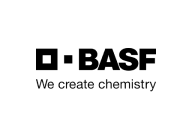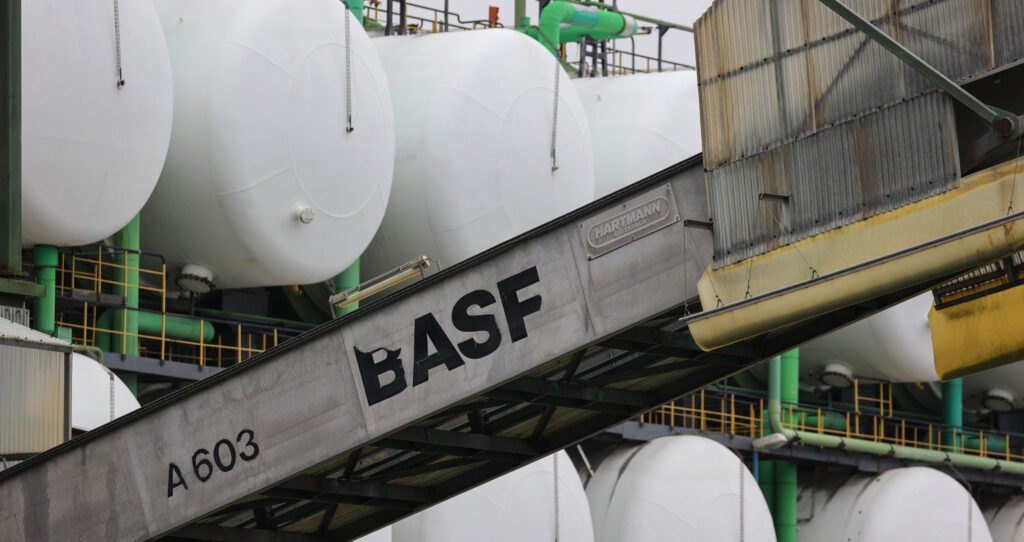
BASF
Top Company Values
Set Net-Zero Carbon Emissions Target
Leading the way to a net-zero future.
BASF has set a net-zero carbon emissions target for 2050. This means that the company aims to achieve a balance between its greenhouse gas emissions and removals by that year. For example, this means that BASF will need to reduce its emissions by 60% by 2030, and then offset the remaining emissions by investing in projects that remove carbon dioxide from the atmosphere.
BASF has invested in a number of solar and wind projects, and it plans to increase its renewable energy use to 40% by 2030. This will help the company to reduce its reliance on fossil fuels and lower its emissions.
BASF has developed a new process for producing plastics that uses less energy and produces fewer emissions. This process is expected to save the company 1 million tons of CO2 emissions per year.
BASF is working on a project to capture carbon dioxide from its production facilities and store it underground. This project is still in the early stages, but it has the potential to significantly reduce the company's emissions.
BASF is working on a project to capture carbon dioxide from its production facilities and store it underground. This project is still in the early stages, but it has the potential to significantly reduce the company's emissions.

Published modern slavery statement
Working to end modern slavery.
BASF is committed to operating a business that is free from modern slavery. In 2019, the company published its first modern slavery statement, which outlines its policies and procedures for preventing and addressing modern slavery in its operations and supply chain.
BASF conducts regular risk assessments to identify and mitigate the risks of modern slavery in its operations and supply chain. This includes assessing the risks of modern slavery in the company's raw materials, products, and services, as well as the risks of modern slavery in the company's own operations and in the operations of its suppliers.
BASF provides training to its employees and suppliers on how to identify and prevent modern slavery. This training covers the definition of modern slavery, the risks of modern slavery, and the company's policies and procedures for preventing modern slavery.
BASF conducts due diligence on its suppliers to ensure that they are not involved in modern slavery. This includes reviewing the supplier's policies and procedures for preventing modern slavery, as well as conducting on-site visits to the supplier's facilities.
BASF has a whistleblowing system in place so that employees and others can report concerns about modern slavery. This system allows employees and others to report concerns anonymously, and BASF takes all reports of modern slavery seriously.
BASF is also a member of the Responsible Sourcing Network, which is a group of companies that are committed to preventing modern slavery in their operations and supply chains. The company works with the Responsible Sourcing Network to share best practices and to develop new tools and resources to help companies prevent modern slavery.

Actively manages ethical and sustainability standards in its supply chain
A responsible business for a sustainable future.
BASF believes that it has a responsibility to its employees, customers, and the environment to ensure that its supply chain is managed in a way that upholds these values.
BASF has a supplier code of conduct that sets out the company's expectations of its suppliers in terms of ethical and sustainable practices.
The code covers a range of issues, including child labor, forced labor, discrimination, and environmental protection. For example, BASF prohibits the use of child labor in its supply chain, and it requires its suppliers to provide their employees with fair wages and safe working conditions.
BASF conducts due diligence on its suppliers to ensure that they are complying with the company's supplier code of conduct.
This includes reviewing the supplier's policies and procedures, as well as conducting on-site visits. For example, BASF recently conducted a due diligence review of its supplier of cobalt, a mineral that is used in the production of batteries. The review found that the supplier was complying with BASF's supplier code of conduct, and it also found that the supplier was taking steps to improve its environmental performance.
BASF provides training to its employees on how to identify and prevent ethical and sustainability risks in the supply chain.
The training covers a range of topics, including how to identify child labor, forced labor, and discrimination. For example, BASF recently trained its employees on how to identify child labor in the production of cocoa. The training helped employees to understand the signs of child labor, and it also helped them to know what to do if they suspect that child labor is being used.
BASF is also a member of a number of organizations that promote ethical and sustainable supply chain practices. These organizations include the Responsible Sourcing Network and the World Economic Forum's Global Lighthouse Network.

Actively practices inclusion
Where everyone belongs.
BASF has a diversity and inclusion council that is made up of employees from different backgrounds and functions.
The council is responsible for developing and implementing the company's diversity and inclusion strategy. It meets regularly to discuss progress, identify challenges, and develop new initiatives.
BASF also has a number of employee resource groups (ERGs) that provide support and networking opportunities for employees from underrepresented groups.
These ERGs are led by employees and focus on specific areas of diversity, such as gender, race, ethnicity, sexual orientation, and disability. They provide a safe space for employees to connect with others who share their experiences, and they also offer opportunities for professional development and networking.
BASF provides training to all employees on diversity and inclusion.
The training covers topics such as unconscious bias, microaggressions, and allyship. It helps employees to understand the importance of diversity and inclusion, and it provides them with tools and resources to create a more inclusive workplace.
BASF is also a member of a number of organizations that promote diversity and inclusion in the workplace. These organizations include the World Economic Forum's Global Lighthouse Network and the Human Rights Campaign.

Engages with community
Creating a better future for our communities.
BASF supports local education. The company donates to local schools and universities, and it also offers scholarships and volunteer programs. For example, BASF has donated more than $10 million to support STEM education in the United States.
BASF contributes to local environmental initiatives. The company supports local environmental organizations and projects. For example, BASF has helped to clean up polluted waterways and restore wetlands in several countries.
BASF provides disaster relief. The company has provided disaster relief to communities affected by natural disasters, such as hurricanes and earthquakes. For example, BASF donated $1 million to help relief efforts in the aftermath of Hurricane Sandy.
One example of BASF's community engagement is its partnership with the World Wildlife Fund (WWF). In 2010, BASF and WWF launched the "Healthy Rivers, Healthy Communities" program. The program aims to improve the health of rivers in China by reducing pollution and promoting sustainable development. As part of the program, BASF has worked with local communities to build wastewater treatment plants and to educate people about the importance of environmental protection.

Has Corporate Responsibility / Sustainability Board Committee
Making sustainability a reality.
BASF has a Corporate Responsibility/Sustainability Board Committee (CSB) that is responsible for overseeing the company's sustainability strategy and ensuring that its operations are aligned with its sustainability goals.
The CSB is made up of senior executives from across the company, and it is chaired by the Chief Executive Officer. The committee meets regularly to discuss the company's sustainability progress, identify new opportunities, and address any challenges.
The CSB helped to develop BASF's sustainability strategy, which outlines the company's goals for reducing greenhouse gas emissions, improving water efficiency, and using more sustainable materials.
The CSB is committed to transparency and accountability in its sustainability reporting, and it publishes an annual sustainability report that details the company's progress on its sustainability goals.
The CSB is an important part of BASF's sustainability efforts, and its work is essential to ensuring that the company meets its sustainability goals and creates a sustainable future for its employees, customers, and the planet.

Values
Set Net-Zero Carbon Emissions Target
Published modern slavery statement
Actively manages ethical and sustainability standards in its supply chain
Actively practices inclusion
Engages with community
Has Corporate Responsibility / Sustainability Board Committee
Company Properties
Trading for 100+ years
Locations
Europe HQ
Resources
Chemicals
Offerings at BASF
by  BASF
BASF
Chemicals BASF's Ammonia Oxidation catalyst (AMOX™) prevents ammonia from reaching the atmosphere.
Supplies to Every ContinentDesigned in GermanyMade in Germany
by  BASF
BASF
Certification
FDA CCP
Manufacturer
by  BASF
BASF
Chemicals Argon is produced by BASF and is sold to commercial customers. The uses of Argon include: flushing gas for degassing of molten metal, as a protective gas for welding, casting, melting, forging and plating of metals.
Supplies to Every ContinentDesigned in GermanyMade in Germany
by  BASF
BASF
Certification
FDA CCP
Manufacturer
by  BASF
BASF
Chemicals Fluid Catalytic Cracking (FCC) Catalyst for upgrading highly contaminated residue feeds
Supplies to Every ContinentDesigned in GermanyMade in Germany
by  BASF
BASF
Certification
FDA CCP
Manufacturer
by  BASF
BASF
Chemicals Carbon dioxide is produced by BASF for the following uses: for the production of beverages, in comminuting, metering, dispensing and packaging of food, for extraction purposes, to isolate or remove flavourings from natural materials and for the production of dry-ice and pellets. Important characteristics of carbon dioxide: incombustible, colorless, odorless.
Supplies to Every ContinentDesigned in GermanyMade in Germany
by  BASF
BASF
Certification
FDA CCP
Manufacturer
Get new company profiles every week!
